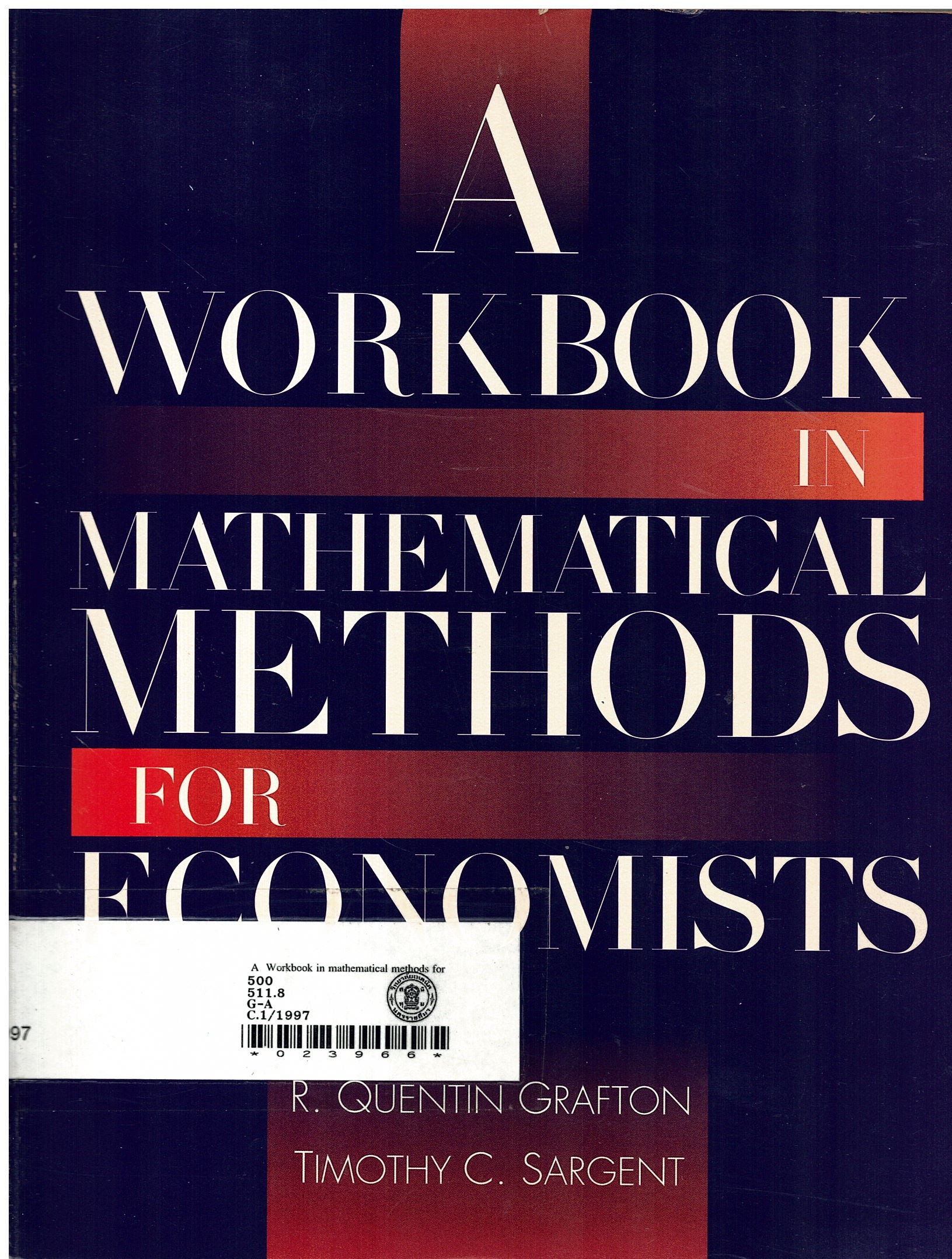ข้อมูลทรัพยากร

A Workbook in mathematical methods for economists.
ประเภททรัพยากร : หนังสือเล่ม
ชั้นเก็บ : ตู้ 9 ชั้น 3 ฝั่งขวา
หมวด : 500
เลขหมู่หนังสือ : 511.8
สำนักพิมพ์ : Mc Graw-Hill Inc.
ผู้แต่ง : Grafton R. Quentin.
ยอดคงเหลือ : 2
เนื้อหาย่อ : Preface
This workbook is written for all those people who have tried problems in mathematics and felt
the frustration of not obtaining the correct answer and not knowing where they went wrong.
The workbook is structured on the belief that for most people mathematical techniques can only
be learned through the use of examples and by independently working through problems and
verifying the solutions. Readers who frst attempt the problems and then verify their answers will
be able to master many of the mathematical methods needed to study intermediate and advanced
undergraduate economics.
Our goal is to provide the reader with the resources to become proficient in the mathematical
analysis used in economics and business. The self-study approach of the workbook is well-suited to
students taking courses in mathematical economics and economic theory and who wish to practise
the techniques and methods learned in class. The workbook is also suitable for readers who may
have previously learned the topics presented in the workbook but who need a review and practice.
To help the reader, each chapter includes a review and introduction of the techniques used in
the questions. The review is not a substitute to consulting the recommended texts because space
limitations prevent the inclusion of almost all the theorems and proofs that underlie the techniques.
We assume the reader has a basic knowledge of algebra and the rules of differentiation. As
much as is possible, each chapter is structured to stand alone and, where necessary, references to
other chapters are provided. In general, the questions are more dificult at the end than at the
beginning of each chapter. We recommend, therefore, that the reader answer the lower numbered
problems first so as to build the confidence and skills required for the more advanced questions.
An important feature of the workbook is the emphasis on objective-based learning. To this end,
we list the skills that will be acquired by correctly answering the questions given in each chapter.
This provides a ready-made structure for self-learning and enables those readers who only wish to
master sub-topics within a chapter to consult the relevant questions.
We are grateful for financial support from the University of Ottawa in preparing the manuscript
and for the facilities provided by the Norwegian School of Economics and Business Administration
(NHH) and the Centre for Fisheries Economics during the summer of 1993. We also thank Stein
Ivar Steinshamn of NHH and Chantale Lacasse and David Gray of the University of Ottawa for
valuable comments on various chapters. We are especially indebted to Greg Flanagan of Mount
Royal College for his encouragement and his many suggestions which have greatly improved the
workbook. We would also like to thank students at the University of Ottawa for finding errors in the
manuscript and for their many useful questions and comments. The efforts of Milan Jayasinghe and
Sean Maguire who provided editorial assistance, Greg Flanagan who helped prepare the camera-
ready copy, and Erin Flanagan who prepared the index are much appreciated.